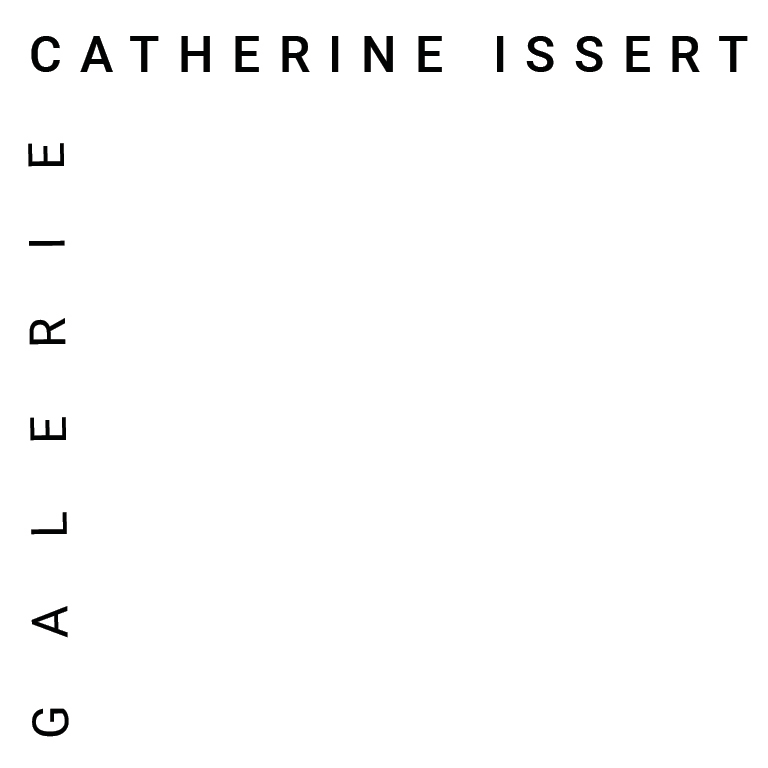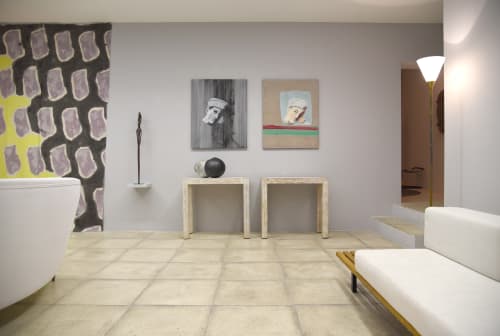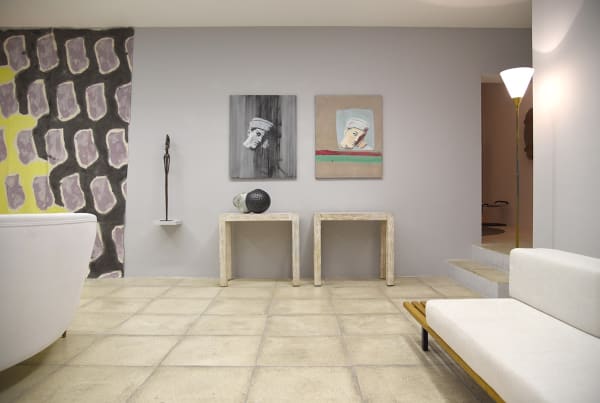LA POSSIBILITÉ D'UNE COLLECTION I
Artistes & Designers : Jean-Michel Albérola, John Armleder, Cécile Bart, Ben, Jean-Charles Blais, Denis Castellas, Antonio Citterio, Daphné Corregan, Carlos Cruz-Diez, Erik Dietman, Jennifer Douzenel, Ray & Charles Eames, Karim Ghelloussi, Kiki Giuliana, Jérôme Grivel, Erick Ifergan, Arne Jacobsen, Paola Lenti, Angelo Lelli, Mathieu Matégot, Jacques Martinez, Jacqueline Morabito, François Morellet, Federico Munari, Bernard Pagès, Pierre Paulin, Charlotte Perriand, Anne Pesce, Gaetano Pesce, Gio Ponti, Pascal Pinaud, Benjamin Sabatier, David Raffini, Marie Roux, Marc Sadler, Mathieu Schmitt, Vladimir Skoda, Ettore Sottsass, Gilles Suffren, Xavier Theunis, Matteo Thun, Gérard Traquandi, Claude Viallat, Tatiana Wolska.
En confrontant le design à l’œuvre d’art, la galerie Catherine Issert invente la possibilité d’une collection. Recréant un appartement imaginaire dans son espace d’exposition, elle tisse des relations potentielles entre des designers qu’elle affectionne et les artistes qu’elle défend. En collaborant avec la galerie Harter, spécialiste du design du XXe siècle et de Loft-Nice, spécialiste de l’aménagement contemporain, Catherine Issert fonde sa sélection sur des affinités sélectives à la subjectivité assumée, témoignant des passerelles existant entre ces deux domaines de création. Des corrélations formelles pourront naître de ce dialogue, mettant en lumière les influences réciproques que ces deux types de pratique ont entretenues tout au long du XXe siècle et qui perdurent aujourd’hui. Que ce soit Bauhaus, héritier du cubisme et du futurisme, le Pop Art se saisissant du statut esthétique de l’objet industriel ou bien encore l’invention du ready-made, toutes ces démarches témoignent de la porosité entre arts plastiques et arts appliqués, systèmes aux pensées spécifiques mais dont les intentions esthétiques et plastiques peuvent se rejoindre, voire parfois être identiques. Vue par le prisme des 40 ans de carrière de Catherine Issert, durant lesquelles la galeriste a constitué son catalogue, l’Histoire perd sa majuscule pour devenir intime. Sa proposition, transhistorique et transdisciplinaire, invitera à penser la relation ambigüe qu’entretiennent l’œuvre et l’objet dans un environnement spécifique. Le white cube disparaît ici au profit d‘une atmosphère plus chaleureuse, qui amènera le spectateur à reconsidérer son rapport à l’œuvre en dehors du champ muséal : pendant un instant, il pourra se projeter dans une vision tout à la fois personnelle et universelle pour inventer, pourquoi pas, la possibilité de sa propre collection. Avec la collaboration de la galerie Harter et de Loft-Nice & Cannes.
_______________________
By confronting design with artwork, the Galerie Catherine Issert invents the possibility of a collection. Recreating an imaginary apartment in her exhibition space, Catherine Issert cultivates potential relationships between designers she finds appealing and artists whose work she presents. In collaboration with the Galerie Harter, a specialist in 20th-century design, and LoftNice, specializing in contemporary furnishings, Catherine Issert bases her choice on selective affinities with fully assumed subjectivity, bearing witness to the bridges that exist between these two fields of creativity. Formal correlations become evident from this dialogue, shedding light on the reciprocal influences that these two types of activity have exercised throughout the 20th century and which still exist today. Whether it be the Bauhaus, heir to Cubism and Futurism, Pop Art appropriating the esthetic status of the industrial object, or the invention of the ready-made, all these approaches testify to the permeability between the fine arts and applied arts, systems with their own specific concepts, but whose esthetic and formal intentions can relate to each other, and sometimes even be identical. Seen through the prism of the four decades of Catherine Issert's career, during which the gallery-owner has compiled her own catalogue, history loses its first two letters to become more personal. Her proposal, trans-historic and trans-disciplinary, is an invitation to consider the ambiguous relationship entertained by the artwork and the object within a specific environment. The white cube disappears here to make room for a warmer atmosphere, encouraging viewers to review their rapport to the artwork outside the context of a museum : for an instant, they will be able to project themselves into a vision both personal and universal, to invent, perhaps, the possibility of their own collection. With the collaboration of the Galerie Harter and Loft-Nice & Cannes.
-

La possibilité d'une collection I
Galerie Catherine Issert
2016
-

La possibilité d'une collection I
Galerie Catherine Issert
2016
-

La possibilité d'une collection I
Galerie Catherine Issert
2016
-

La possibilité d'une collection I
Galerie Catherine Issert
2016
-

La possibilité d'une collection I
Galerie Catherine Issert
2016
-

La possibilité d'une collection I
Galerie Catherine Issert
2016
-

La possibilité d'une collection I
Galerie Catherine Issert
2016








